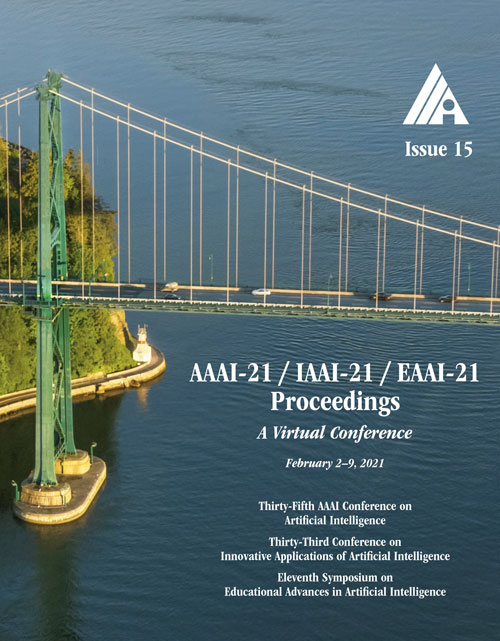HopRetriever: Retrieve Hops over Wikipedia to Answer Complex Questions
DOI:
https://doi.org/10.1609/aaai.v35i15.17568Keywords:
Question AnsweringAbstract
Collecting supporting evidence from large corpora of text (e.g., Wikipedia) is of great challenge for open-domain Question Answering (QA). Especially, for multi-hop open-domain QA, scattered evidence pieces are required to be gathered together to support the answer extraction. In this paper, we propose a new retrieval target, hop, to collect the hidden reasoning evidence from Wikipedia for complex question answering. Specifically, the hop in this paper is defined as the combination of a hyperlink and the corresponding outbound link document. The hyperlink is encoded as the mention embedding which models the structured knowledge of how the outbound link entity is mentioned in the textual context, and the corresponding outbound link document is encoded as the document embedding representing the unstructured knowledge within it. Accordingly, we build HopRetriever which retrieves hops over Wikipedia to answer complex questions. Experiments on the HotpotQA dataset demonstrate that HopRetriever outperforms previously published evidence retrieval methods by large margins. Moreover, our approach also yields quantifiable interpretations of the evidence collection process.Downloads
Published
2021-05-18
How to Cite
Li, S., Li, X., Shang, L., Jiang, X., Liu, Q., Sun, C., Ji, Z., & Liu, B. (2021). HopRetriever: Retrieve Hops over Wikipedia to Answer Complex Questions. Proceedings of the AAAI Conference on Artificial Intelligence, 35(15), 13279-13287. https://doi.org/10.1609/aaai.v35i15.17568
Issue
Section
AAAI Technical Track on Speech and Natural Language Processing II

